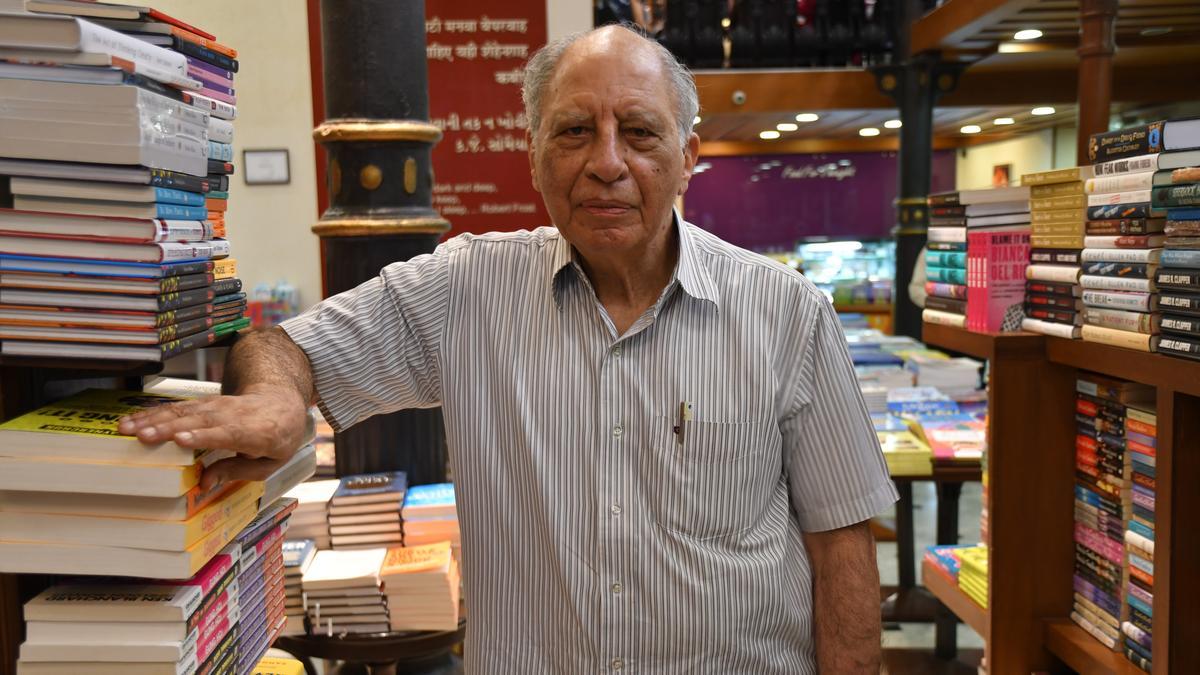
W.H. Auden’s revered poem “In Memory of W.B. Yeats” commences with the lines:
Time that is intolerant
Of the brave and the innocent
And indifferent in a week
To a beautiful physique
Worships language and forgives
Everyone by whom it lives…
These lines aptly characterize the lasting impact of literary greats, including the illustrious Keki N. Daruwalla. A man deeply attuned to the power of words, Daruwalla meticulously crafted a formidable literary legacy that encompassed 15 collections of poetry alongside 10 works of short and long fiction. His works showcased a breathtaking range and clarity of vision, imbued with an underlying worldview that was both robust and deeply philosophical.
My association with Keki spans an impressive 40 years. Even prior to this period, I was aware of him through my father, who worked alongside Keki in the Indian Police Service and the intelligence community, particularly within the Research & Analysis Wing. In 1984, as my debut novel “Paro” garnered international acclaim and faced unexpected criticism from the Indian literary circles, Keki, awarded the Sahitya Akademi award for his poetry collection “The Keeper of the Dead,” came to my defense. He wrote a balanced and thoughtful review in The Indian Express, a gesture that cemented a cherished friendship.
Reflecting on his legacy calls for a closer examination of his extensive body of work—poems, novels, short stories, and personal memories. Daruwalla’s inaugural poetry collection “Under Orion,” published by P. Lal in 1970, laid the foundation for a poetical journey that included 14 additional collections, with “Landfall” being the most recent, released by Speaking Tiger in 2022.
Daruwalla also made a significant mark in the realm of short stories, with seven highly acclaimed collections to his name. The latest, titled “Going,” published in 2022, opens with “The Brahmaputra Trilogy,” a poignant and raw exploration of race, identity, and the vestiges of British colonial rule.
In 2014, Keki N. Daruwalla was honored with the Padma Shri, India’s fourth-highest civilian award, presented by President Pranab Mukherjee, showcasing his significant contributions to Indian literature on a national level.
His literary contributions extended to three exceptional novels: “For Pepper and Christ” (2009), “Ancestral Affairs” (2015), and “Swerving to Solitude” (2018). Keki’s understanding of narrative structure, coupled with his deceptively simple style and insightful grasp of society, endowed these novels with extensive scope, documenting recent Indian history and regional politics.
In 2022, Keki shared with me a manuscript of what might be his final novel, titled “Alexandria and The Fallen Priest.” The narrative voice was vibrant and compelling, showcasing Keki’s continued prowess in storytelling. Despite undergoing revisions and recovery of lost fragments, the work remains unpublished. However, it is my sincere hope that this ambitious project will eventually be recognized and celebrated.
Keki also divulged that he was embarking on a new fictional work set in ancient India. His poetic output remained prolific, often infused with contemporary observations that he shared via social media.
. His dedication to writing was relentless, and he exhibited a disciplined approach towards contemplation and commentary.
Keki maintained his youthful vigor through his engagement with the younger generation of poets, generously providing introductions and endorsements for their publications. The human legacy he leaves behind is one of kindness, affection, and unwavering support for emerging writers.
The memories shared with me encapsulate an era of laughter, joy, and generosity. One particular evening, possibly two years ago, stands out when author Devapriya Roy and I visited Keki at his Delhi residence. We discussed his book “Going.” Keki then reminisced through yellowed photographs and our conversation drifted into nostalgic territory, often punctuated with Keki’s characteristic sharp remarks. He brought out a bottle of fine cognac reserved for special occasions. That night, we set aside our worries and reveled in the joy of friendship and restorative laughter — a memory I’ll forever hold dear.
Keki’s grounding in his Zoroastrian faith and profound understanding of India and the world made him a cosmopolitan figure. His professional journey included roles in the police, intelligence agencies, and as a member of the National Commission for Minorities. Despite the personal trauma of losing his wife, Keki remained gentle, humane, and idealistic.
As I peruse old emails while writing this tribute, I stumbled upon an unpublished poem titled simply, “Prayer,” which Keki sent me on October 2, 2021. The poem resonates deeply and exemplifies Keki’s hope for harmony and understanding in turbulent times.
Prayer
Let not the harsh winds of our times
blow love away.
Let not the harsh winds of our times
blow our perceptions into a wall
behind which people are sharpening knives.
Let not the harsh dreams of our times
devour us, along with our appetites.
Lead us from this landscape of rubble
to water, but let the sound be real —
even traffic sounds like surf at night.
And let water remain water
and not turn to blood.
…Let the repressed be brought into light,
the hidden into knowledge.
Let there be harmony
between those who speak of shadows
and those who speak of the sun.
Let the unlit be lit.
Steer the light our way.
Let the forest leaf.
Let the lyric leaf.
Keki’s absence is deeply felt, and we recognize the extent of our loss now that he is gone, for there are ever fewer individuals of his unparalleled integrity left among us.
The writer is the co-director of the Jaipur Literature Festival.












